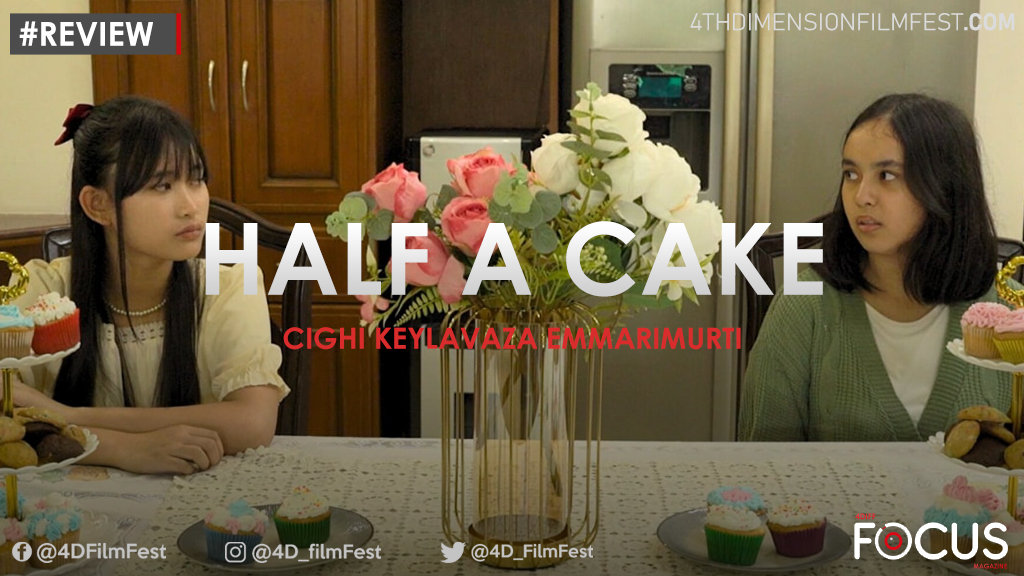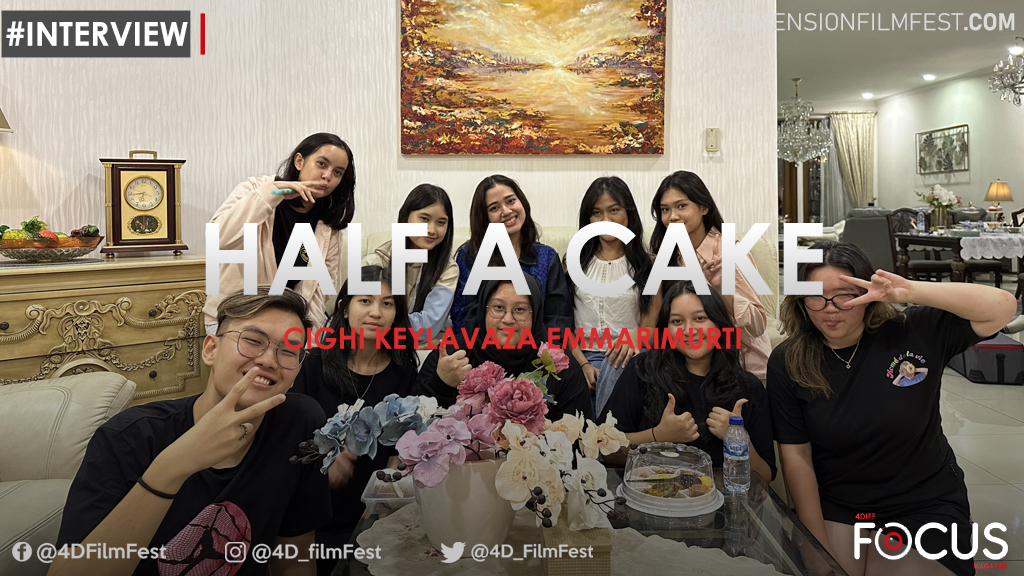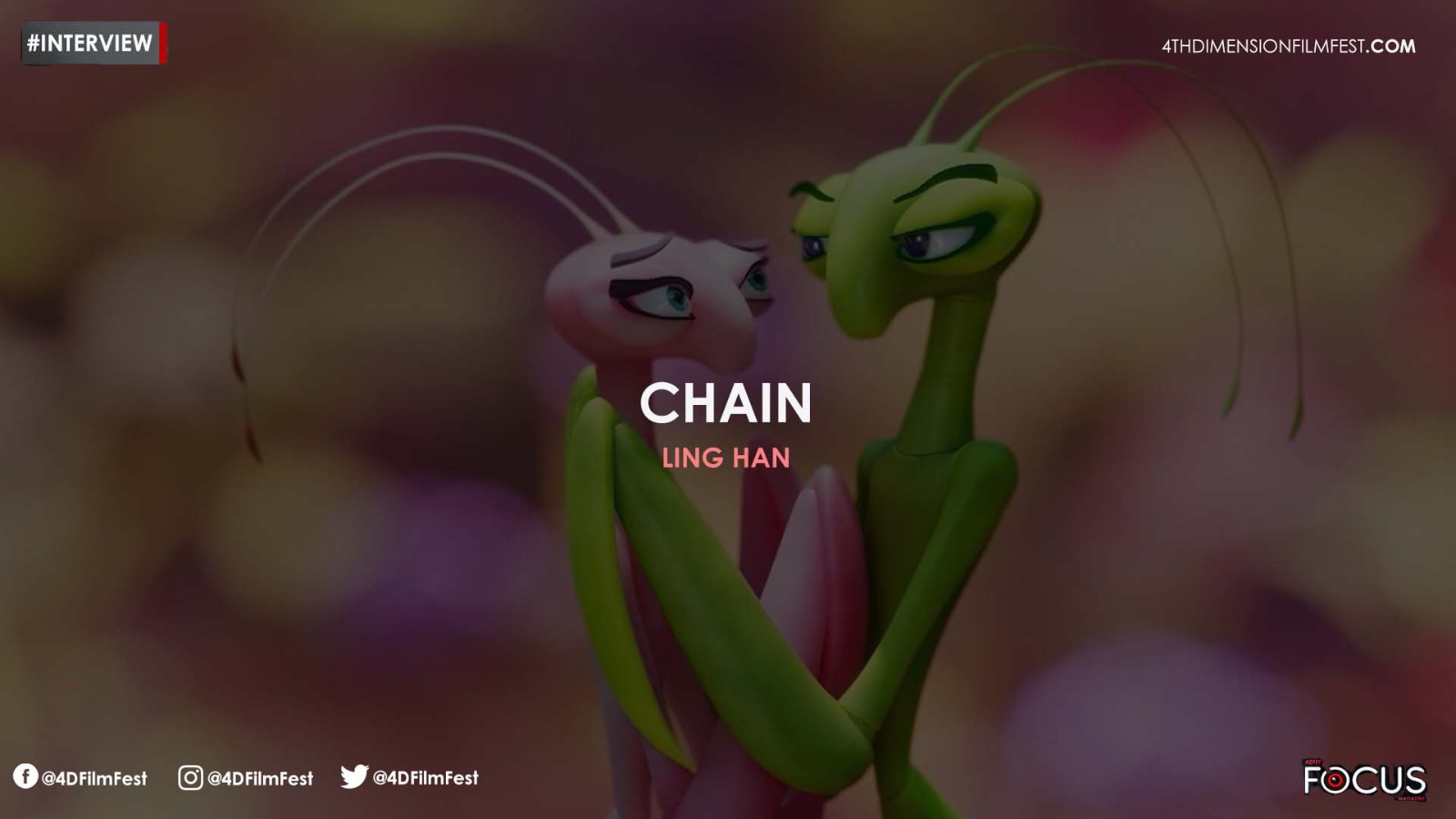Movie: Half a cake
Directed by: Cighi Keylavaza Emmarimurti
“The most difficult losses are sometimes those that come without warning, without conflict—just absence.”
Sometimes, they arrive in the quiet form of a drifting friendship—unannounced, unresolved, and devastating. Cighi Keylavaza Emmarimurti’s Half a Cake delves into one such heartbreak, exploring the emotional rupture that occurs when a close friendship ends without explanation. The film is an aching, subdued meditation on growing apart, the illusions of permanence, and the unspoken grief of being left behind.
Set against the intimate backdrop of high school corridors and quiet suburban homes, Half a Cake follows Nora and Jessi—two best friends navigating the fragile terrain of adolescence. Nora turns seventeen and celebrates with Jessi, unaware that the joy of that day will soon turn sour. When Jessi finds new friends—Amanda, Shelly, and Rachel—Nora begins to feel the space between them widen. What follows is not a dramatic fallout but a slow, silent exclusion that culminates in Nora being left out of Jessi’s own birthday party. Determined to understand why, Nora arrives uninvited, only to be met with humiliation, subtle hostility, and the crushing realization that she no longer belongs.
The film’s title, Half a Cake, is at once poetic and profound. It represents the core emotional philosophy of the film—that joy, hope, and fulfillment often arrive in incomplete forms. Birthdays, symbols of celebration and continuity, become painful reminders of broken bonds. A cake half-eaten or half-shared becomes a metaphor for the  relationships we build in life: beautiful, temporary, and often unfinished. In Emmarimurti’s world, mirth and warmth are occasional visitors in the otherwise unlit rooms of adolescence. The half-cake is what Nora is left with—a fragment of a friendship that once felt whole.
relationships we build in life: beautiful, temporary, and often unfinished. In Emmarimurti’s world, mirth and warmth are occasional visitors in the otherwise unlit rooms of adolescence. The half-cake is what Nora is left with—a fragment of a friendship that once felt whole.
One of the film’s most compelling themes is the human urge to seek permanence in an impermanent world. For Nora, Jessi was not just a friend, but a constant. Her absence is not just betrayal—it’s the shattering of emotional certainty. The film delicately explores how we attach ourselves to people in hopes of building something unshakeable, only to discover that change is inevitable, and sometimes cruel. Jessi doesn’t offer an explanation because, like many real-life friendships, hers with Nora fades without any final act. Emmarimurti seems to say: not all endings are loud. Some are quiet enough to break your heart.
Another poignant idea woven into the narrative is the tussle between authenticity and superficiality. Jessi’s new friendships seem more performative than personal. There is a quiet pressure she faces to conform, to exclude, to ridicule—trading sincerity for social validation. The group dynamics reflect the subtle cruelty that often exists within teenage social hierarchies, where popularity is prized more than empathy. Nora, who represents emotional honesty, becomes the sacrificial lamb in this transformation. And yet, despite the humiliation and longing, she chooses not to fight for a place she no longer fits into. It is this act—her decision to walk away—that becomes the film’s moral heartbeat.
ridicule—trading sincerity for social validation. The group dynamics reflect the subtle cruelty that often exists within teenage social hierarchies, where popularity is prized more than empathy. Nora, who represents emotional honesty, becomes the sacrificial lamb in this transformation. And yet, despite the humiliation and longing, she chooses not to fight for a place she no longer fits into. It is this act—her decision to walk away—that becomes the film’s moral heartbeat.
The performances in Half a Cake are remarkably understated. The actors, especially those portraying Nora and Jessi, capture the unpredictable emotional palette of teenagers: the sudden rage, the passive-aggression, the moments of quiet despair, and the desire to feel seen. Jessi’s conflicting expressions—sometimes guilt-ridden, sometimes indifferent—reveal a young person unsure of her own choices. Nora, by contrast, carries the burden of clarity: her pain is visible, but so is her dignity.
Technically, the film is executed with restraint and elegance. The direction is flawless, never manipulative.  Emmarimurti resists melodrama, instead allowing silences to speak and glances to wound. The subtle background score accentuates the emotional weight without overpowering it, creating a mood that hovers between tension and melancholy.
Emmarimurti resists melodrama, instead allowing silences to speak and glances to wound. The subtle background score accentuates the emotional weight without overpowering it, creating a mood that hovers between tension and melancholy.
In conclusion, Half a Cake is a quiet triumph. It doesn’t shout; it whispers truths many of us are too afraid to say aloud. It reminds us that not all losses are romantic, and not all grief is loud. Through Nora’s journey, the film urges us to accept that sometimes the most painful goodbyes come without a reason, and that choosing self-respect over longing is an act of courage. In a world obsessed with happy endings, Half a Cake dares to leave us with half—and it is enough.




